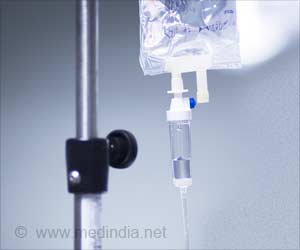Centhaquine, a new drug to treat patients who have severe blood or fluid loss, significantly improved outcomes and reduced death rate among shock patients.

‘Centhaquine raises systolic, diastolic blood pressure, lowers blood lactate and improves survival rates in patients with hypovolemic shock.’
Read More..




"Despite advances in medical science, treatment for hypovolemic shock has changed little in the past 50 years, and there is an urgent need for an effective resuscitative agent for this serious and life-threatening condition. We investigated the safety and efficacy of centhaquine compared to standard care for the treatment of hypovolemic shock." Read More..
Centhaquine,the agent for treating hypovolemic shock, acts by increasing pooled venous blood returning to the heart and redistributes that blood to vital organs, a critical process to preserve organ function and reduce mortality in patients with shock.
This multi-center, randomized, placebo-controlled phase III clinical study included 105 patients in India receiving standard of care for hypovolemic shock in a hospital or intensive care setting.
Patients in the study were randomized to receive either 1) standard of care and intravenous centhaquine, or 2) standard of care plus saline (control group).
The findings include:
Advertisement
2.Reduction of blood lactate levels to 1.5 mmol/L or less occurred in 47% of the control group patients and 69% of the centhaquine patients. High levels of blood lactate are related to an increased risk of death for patients experiencing shock.
Advertisement
4.The 28-day death rate was 12% in the control group and 3% in the centhaquine group.
Gulati added that the centhaquine group had improved acute respiratory distress syndrome and multiple organ dysfunction scores compared with the control group.
"Time is of the essence for hypovolemic shock patients, and these results suggest faster recovery towards normalization of blood pressure with centhaquine," Gulati said. "Centhaquine added to standard shock treatment also showed compelling mortality improvement over standard shock treatment, with a 9% absolute reduction in mortality compared to the control group."
Centhaquine is available to health care professionals in India at present and is advancing towards final stage clinical trials in the United States.
Source-Medindia









